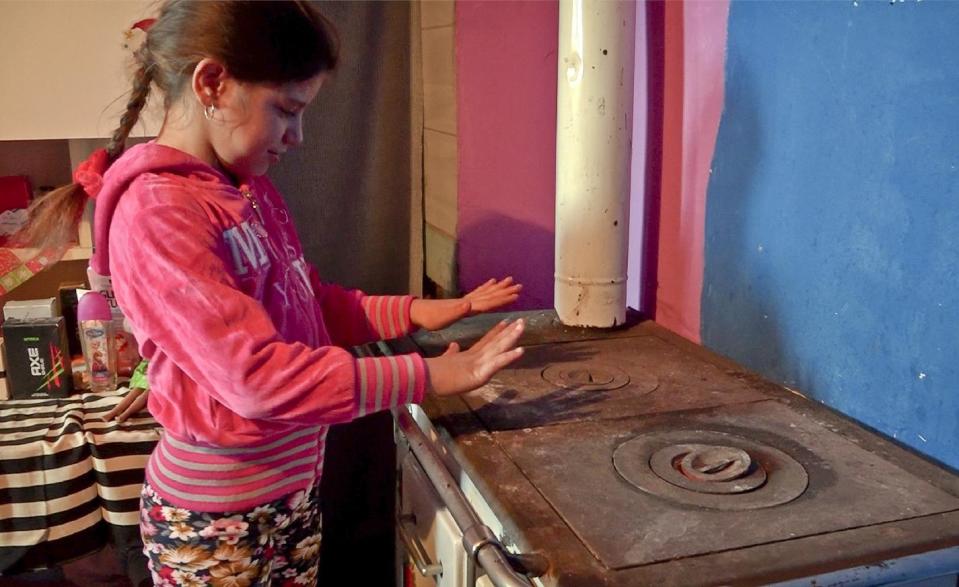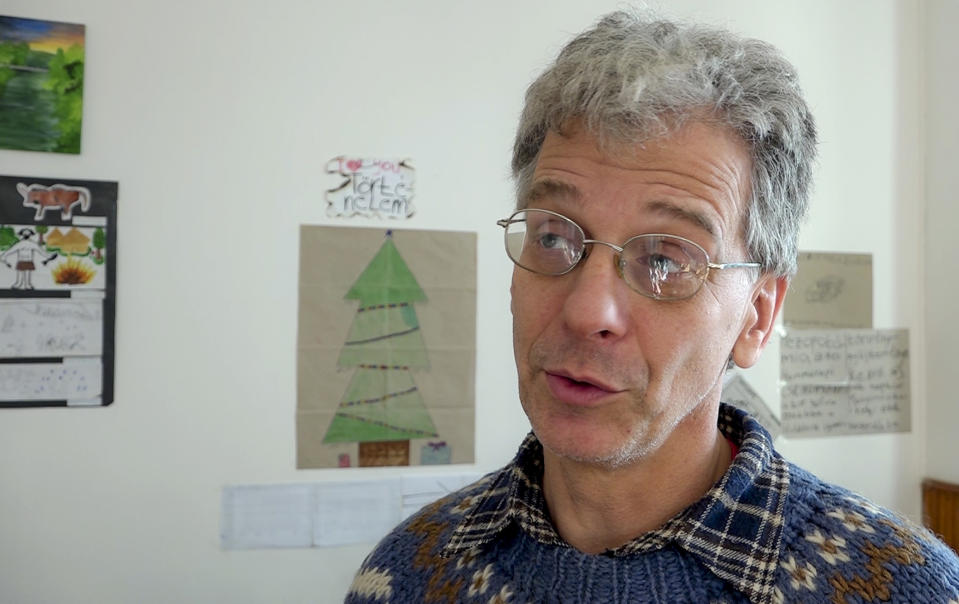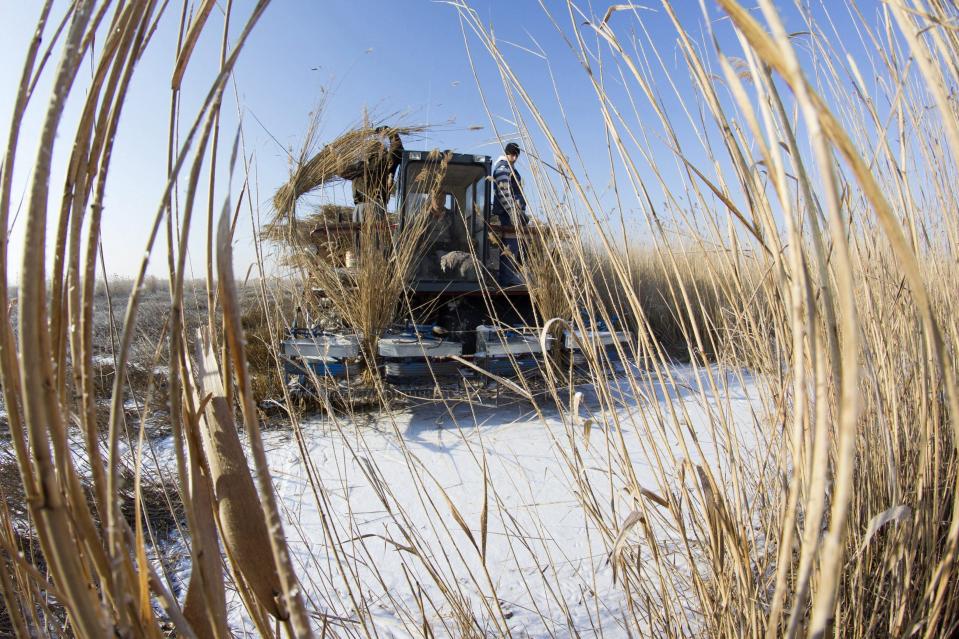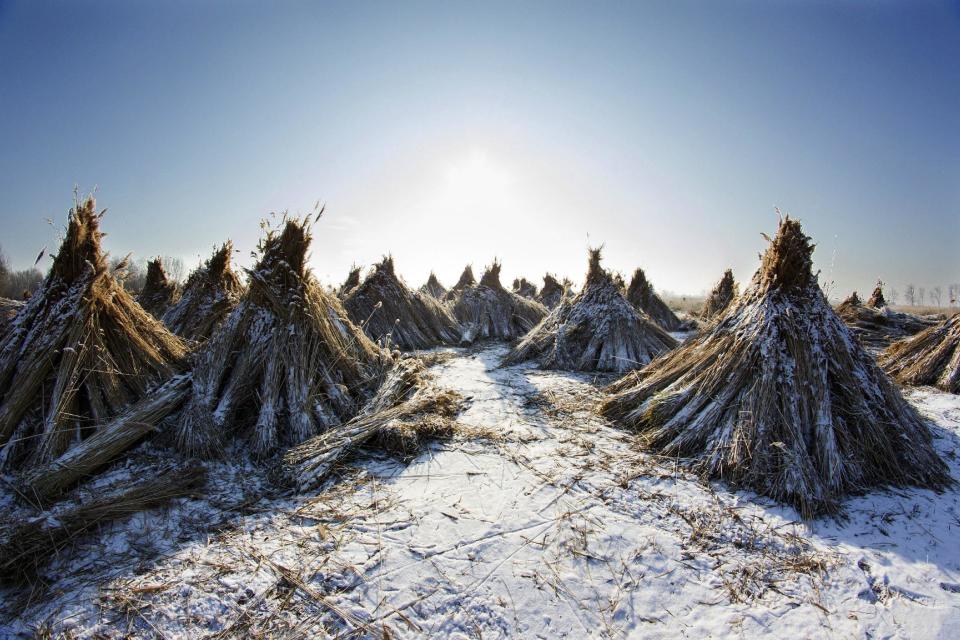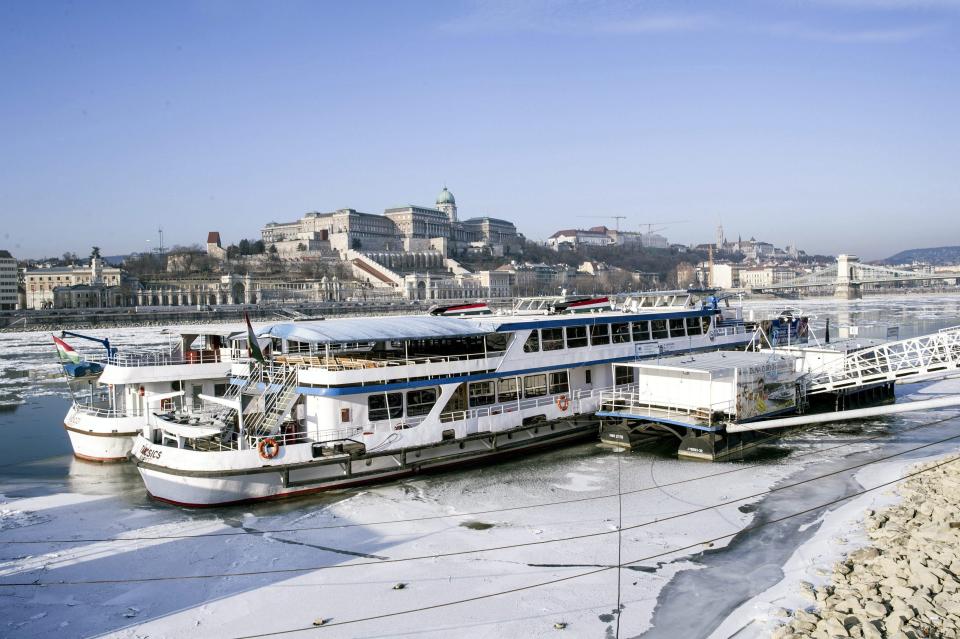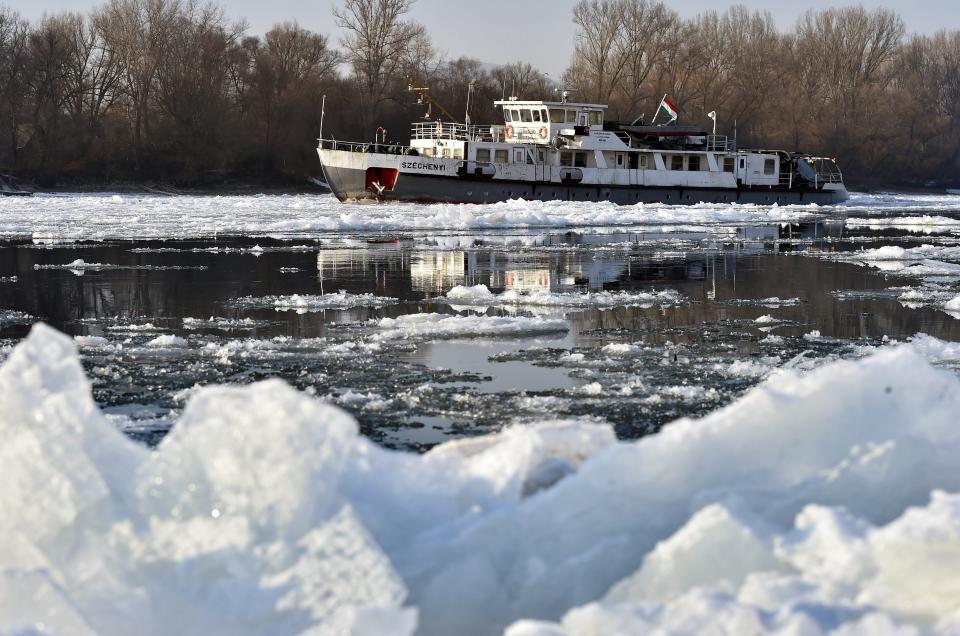Roma struggle to keep warm in Hungary's deadly cold snap
ALSOZSOLCA, Hungary (AP) — When there's firewood to be chopped, Ferenc Vadasz cuts class.
It may not sound like a good reason to skip school, but the ninth grader says a well-stocked woodpile is the only thing that keeps families from freezing in Alsozsolca, an impoverished village in northeast Hungary, during a vicious cold spell that has caused more than 70 deaths across Europe.
Anna Horvath, who relies on her son to help her with such chores, says "that's why I don't let him go to school."
Like thousands of other homes in the region, their three-room house lacks plumbing and modern heating, and fighting the cold is a daily struggle for the family, members of Hungary's Roma minority.
Vadasz and his mother chatted with the school principal outside the house this week, where a single stove provides heat for their family of five.
A couple of girls, meanwhile, carried a bucket of water drawn from a communal pump, walking down a frost-caked road past graffiti-strewn houses with outhouses in their backyards. Stray dogs huddled for warmth among the trash.
Vadasz, a previous school dropout, now attends the Dr. Ambedkar School in the nearby city of Miskolc, which has a sizeable Roma minority. Principal Tibor Derdak says more than 20 percent of pupils do not go to school when families need boys or young men to chop or gather wood.
Derdak said when people cannot afford firewood, they venture into the forests to gather trees or sticks, an offense punishable by up to two years in prison, though police sometimes turn a blind eye to illegal wood felling.
Some resort to drastic measures. Last winter, one young man arrived at school with soaking trousers after he waded across the freezing Sajo River to collect wood, said Erika Gal, who works in the school's administration.
"He put scraps of wood between his teeth so he could bite on them to relieve the pain because he was so cold," she said. "It was like in a World War II movie."
Poverty is a generational problem for many Roma families, Derdak said. Before communism collapsed in 1989, residents worked at local factories or mines, but they closed down after communism ended and the markets for the goods collapsed.
Today, many Roma, who are believed to number at least half a million in Hungary alone — work in low-paid public sector jobs, where they earn around 53,000 forints ($183) a month. Vadasz said his family pays 23,000 forints for 500 kilograms (1,100 pounds) of firewood several times a winter season.
Hungary's Interior Ministry says it is providing a month's worth of free firewood to 185,000 needy families and has published a list of heated shelters for use if needed. Opposition lawmakers, however, have criticized the government for not doing more to prevent scores of cold-related deaths this winter.
"Free firewood helps, but it is not enough for us to avoid these kinds of tragedies," said Ildiko Major Szucs, a spokeswoman for the far-right Jobbik party. "It is embittering to know that such a situation can exist in Hungary in the 21st century."




